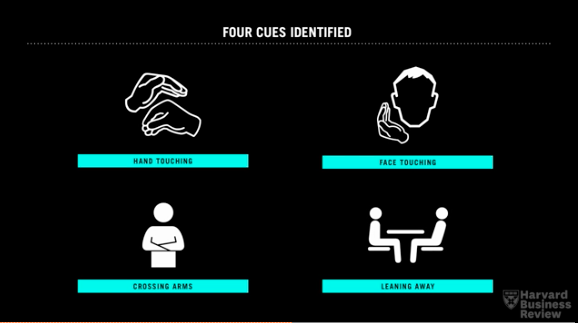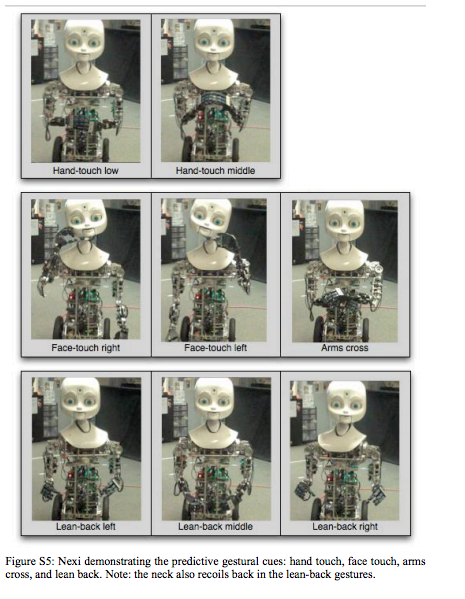These 4 Body Language Cues Expose If You Can't Trust Someone

By:
In a politically polarized nation still unsettled by post-9/11 surveillance, suspicion of people and institutionspervades American culture. Though it's not always possible to detect trickery, some physiological cues may help to provide some insight into when a stranger deserves the benefit of the doubt.
 Stocksy/Briana Morrison - stocksy.com
Stocksy/Briana Morrison - stocksy.com
In a two-part experiment published in 2012 by the Association for Psychological Science (PDF), Northeastern University psychological scientist David DeSteno and his co-authors investigated what determines whether someone trusts a stranger.
In the first part of the experiment, researchers videotaped pairs of students meeting for the first time and playing an "economic-exchange game."
Random assignments determined whether a duo met in person or interacted online.

Study participants talked or chatted for five minutes getting to know one another based on (but not limited to) questions about their lives and interests provided by the researchers. After these sessions, they received instructions to play one round of the "Give-Some Game." In the game, each person was allocated four $1 tokens that doubled in value when given to their partner. In addition to reporting the amount of tokens they decided to give, students predicted what their partners would do.
 Stocksy/Good Vibrations Images
Stocksy/Good Vibrations Images
The results confirmed the authors' theory that participants who met in person predicted whether their partner's behavior was selfish or cooperative more accurately than those who interacted online.
DeSteno and his co-authors pin-pointed a combination of four physical cues that revealed players who couldn't be trusted to cooperate. The four gestures included: touching your hands, touching your face, crossing of the arms, and leaning back.
The key to the study's findings was not the meaning of isolated single cues, but rather the identification of a distinct set of physiological signals associated with distrust, DeSteno explains in a video on the Harvard Business Review.
 Harvard Business Review - hbr.org
Harvard Business Review - hbr.org
“Scientists haven’t been able to unlock the cues to trust because they’ve been going about it the wrong way,” he said in a press release. “There’s no one golden-cue. Context and coordination of movements is what matters.”
 Pexels/Creative Commons - pexels.com
Pexels/Creative Commons - pexels.com
The second part of the study replicated the experiment by having participants play the game against a robot called Nexi, who mimicked the four 'untrustworthy' gestures, which confirmed the results.
 Psychological Science - researchgate.net
Psychological Science - researchgate.net
"When Nexi used the target gestures— but not when she used other gestures — the volunteers reported feelings of distrust toward the robot," according to the study. Further, increased frequency of these body language cues and exhibiting several cues at once signified "greater untrustworthiness," the study authors wrote.
They distinguished between feelings of distrust and dislike. Subjects who distrusted the robot did not always report disliking her, which the researchers linked to human capacities to like people we wouldn't trust to handle our own money. This portion of the experiment also illustrated that people attribute human characteristics to lifelike robots, David DeSteno says in a video describing the research on the Harvard Business Review.
In recent years, communications and marketing experts have adopted research on body language and psychology in professional advice about job interviews, maintaining the trust of coworkers, and winning over clients.
"Considering that studies show the vast majority of the messages we send are conveyed through our body language, it's imperative that you think about not just what you say, but also how you carry yourself and act," communications expert Patrick King told Business Insider in June.
"If someone shows slumping posture or crossed arms, for instance, we are conditioned to assume that they are tired or disinterested in speaking," King added. "If someone avoids eye contact, we're wired to think it's because they have something to hide. Neither of these are universal truths, yet we must make sure to pay attention to them otherwise people will perceive us negatively."
[H/T Time]
